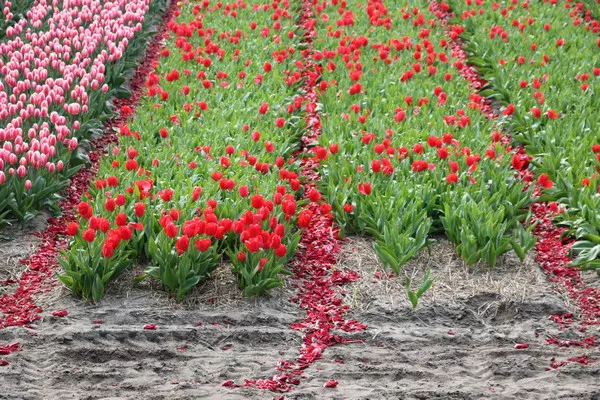Ants are remarkable creatures that play vital roles in the ecosystem, but they can become unwelcome guests in our flower pots, causing damage to plants and disturbing the garden’s harmony. While chemical pesticides are available, many prefer natural and eco-friendly methods to deter ants. In this article, we will explore effective ways to get rid of ants in flower pots naturally, as well as preventive measures to keep them at bay.
Understanding Ants in Flower Pots
1. Attracted by Food and Shelter
Ants are drawn to flower pots primarily due to the availability of food sources such as fallen seeds, plant debris, and sugary substances. Moreover, the soil in the pots offers an ideal nesting environment, protecting the ant colonies from predators and adverse weather conditions.
2. Ants’ Impact on Plants
While most ants do not directly harm plants, their constant presence can disturb the soil and root systems. Furthermore, some ant species, like the aphid-tending ants, “farm” aphids on plants, leading to damage from aphid infestations. As a result, controlling ants in flower pots is essential to maintain the health and aesthetics of the garden.
Natural Ways to Get Rid of Ants in Flower Pots
1. Use Vinegar Solution
Vinegar is an effective natural deterrent for ants. Mix equal parts of water and white vinegar in a spray bottle and apply the solution to the ant trails and areas around the flower pots. The strong scent of vinegar disrupts their pheromone trails, discouraging them from returning.
2. Employ Cinnamon Powder
Cinnamon has a pleasant aroma for humans, but ants find it repulsive. Sprinkle cinnamon powder around the base of the flower pots and along ant pathways. This acts as a barrier and prevents ants from entering the pots.
3. Lemon Juice as a Repellent
Lemon juice contains citric acid, which masks the scents that attract ants. Squeeze fresh lemon juice around the flower pot rims and on the ground nearby to deter ants. Additionally, lemon peels can be strategically placed near the pots as a preventive measure.
4. Borax and Sugar Bait
To eliminate the ant colonies, create a bait using a mixture of borax and sugar. While sugar attracts ants, borax acts as a slow-acting toxin. Dissolve half a teaspoon of borax and one teaspoon of sugar in one cup of warm water. Soak cotton balls in the solution and place them near ant trails or suspected nesting sites. Caution should be exercised when using borax around pets and children.
5. Diatomaceous Earth (DE)
DE is a natural and safe option to combat ants in flower pots. It consists of fossilized diatoms, which are harmless to humans and animals but lethal to insects like ants. Sprinkle DE around the pots, creating a barrier to keep ants away. When ants come into contact with DE, the fine powder dehydrates their exoskeletons, leading to their demise.
Preventive Measures
1. Keep Flower Pot Areas Clean
Regularly clean the area around the flower pots, removing fallen leaves, seeds, and other debris. Reducing potential food sources discourages ants from foraging in the vicinity.
2. Seal Entry Points
Inspect the flower pots and surrounding areas for cracks or gaps that may serve as entry points for ants. Seal these openings with caulk or weather-stripping to prevent ant infiltration.
3. Elevate Flower Pots
Elevating the flower pots on stands or using pot feet can make it harder for ants to climb up and access the plants. This simple technique can be particularly effective against crawling ants.
4. Use Ant-Repellent Plants
Introduce ant-repellent plants around the flower pots. Some herbs like mint, lavender, and rosemary emit scents that ants dislike, helping to keep them away.
Beneficial Insects for Ant Control
1. Ant-Eating Predators
Introducing natural predators of ants can be an effective biological control method. Ant-eating insects like ladybugs and lacewings can help keep ant populations in check by consuming them and their aphid “livestock.”
2. Nematodes
Beneficial nematodes are microscopic worms that parasitize ants and their larvae. Applying nematodes to the soil can help reduce ant populations naturally.
Maintaining a Harmonious Garden
1. Eco-Friendly Gardening Practices
Adopt eco-friendly gardening practices to create a balanced and sustainable garden environment. Limit the use of chemical pesticides and opt for natural solutions whenever possible.
2. Regular Monitoring
Frequent monitoring of the flower pots and garden allows for early detection of ant activity. Addressing ant problems promptly prevents them from establishing larger colonies.
Conclusion
Getting rid of ants in flower pots naturally is both environmentally friendly and effective. By using readily available household items and implementing preventive measures, gardeners can deter ants and protect their cherished plants without harming the environment or beneficial insects. Cultivating a harmonious garden ecosystem ensures that ants and other organisms play their roles without disrupting the serenity and beauty of the garden space. So, equip yourself with these natural remedies and preventive techniques to bid farewell to ants in your flower pots and embrace a flourishing and pest-free garden.


